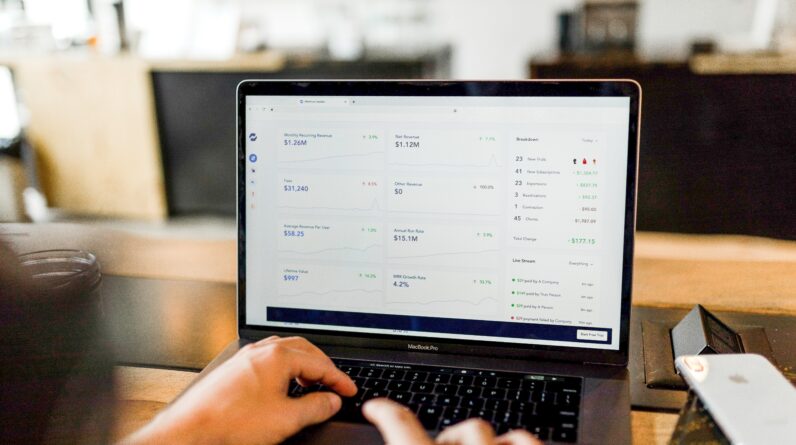
Have you ever wondered what Bitcoin is and how you can make money from it? Well, you’re in luck because this article will explain it all to you. Whether you’re completely new to the world of cryptocurrency or just looking to expand your knowledge, you’ll find everything you need to know right here.
Bitcoin is a digital currency that was created in 2009 by an unidentified person using the name Satoshi Nakamoto. It operates on a decentralized network known as blockchain, which means that there is no central authority, such as a government or bank, that controls it. This makes Bitcoin unique and different from traditional forms of currency. In this article, we’ll dive into the details of how Bitcoin works, how to acquire it, and most importantly, how to make money from it. So, if you’re ready to take the plunge into the world of Bitcoin, keep reading to find out more!

Table of Contents
What is Bitcoin: A Beginner’s Guide
Introduction
Welcome to this beginner’s guide to Bitcoin! In this comprehensive guide, we will walk you through the ins and outs of Bitcoin, covering everything from its origin and history to how to acquire, store, and use it for transactions. Whether you’re completely new to the world of cryptocurrencies or have some basic knowledge, this guide aims to provide you with a solid foundation to understand and navigate the exciting realm of Bitcoin.
Understanding Bitcoin
Bitcoin’s origin and history
Bitcoin, created by an anonymous person or group using the pseudonym Satoshi Nakamoto, was introduced in a whitepaper in 2008. The first block of the Bitcoin blockchain, known as the Genesis Block, was mined in January 2009. Since then, Bitcoin has gained significant traction and has become the most well-known and valuable cryptocurrency in the world.
How Bitcoin works
At its core, Bitcoin is a digital decentralized currency that operates on a peer-to-peer network. Transactions are recorded on a public ledger called the blockchain, which is maintained by a decentralized network of computers called nodes. These nodes validate and confirm transactions, ensuring the integrity and security of the entire network. The use of cryptographic techniques ensures that transactions are secure and cannot be tampered with.
Key concepts of Bitcoin
To understand Bitcoin, it’s important to grasp a few fundamental concepts. Firstly, Bitcoin is a decentralized currency, meaning it is not controlled by any central authority such as a government or financial institution. Secondly, Bitcoin operates on a blockchain, which is a distributed ledger that stores all transactions ever made with Bitcoin. Lastly, Bitcoin is finite, with a maximum supply of 21 million coins, making it a scarce and potentially valuable asset.
Why Bitcoin is decentralized
Bitcoin’s decentralized nature is one of its most significant features. Unlike traditional currencies that are controlled by central banks, Bitcoin is not subject to governmental or financial institution control. This decentralization ensures that no single entity has the power to manipulate or censor transactions, providing users with financial autonomy and security.
The role of blockchain in Bitcoin
The blockchain plays a crucial role in facilitating and securing Bitcoin transactions. As mentioned earlier, the blockchain is a public ledger that records all Bitcoin transactions. When a transaction is made, it is added to a block, which is then added to the blockchain. The blockchain’s decentralized nature ensures that all transactions are transparent and can be verified by anyone in the network, thereby preventing fraud and double-spending.
Getting Started with Bitcoin
Setting up a Bitcoin wallet
To start using Bitcoin, you’ll need a Bitcoin wallet. A wallet is a software or hardware device that allows you to store, send, and receive Bitcoin securely. There are various types of wallets available, such as desktop wallets, mobile wallets, web wallets, and hardware wallets. Each has its own advantages and considerations, so it’s essential to research and choose the one that best suits your needs.
Choosing a reliable cryptocurrency exchange
To acquire Bitcoin, you’ll need to find a reliable cryptocurrency exchange. Exchanges are platforms that allow you to convert traditional fiat currencies, such as USD or EUR, into Bitcoin. When choosing an exchange, factors to consider include its reputation, security measures, fees, available payment methods, and user-friendliness.
Different types of Bitcoin wallets
As mentioned earlier, there are several types of Bitcoin wallets. Desktop wallets are installed on your computer and offer greater security but require regular software updates. Mobile wallets are installed on your smartphone, providing convenience and accessibility for daily transactions. Web wallets are online wallets that can be accessed from any device with an internet connection. Hardware wallets are physical devices that store your Bitcoin offline, offering the highest level of security.
Securing your Bitcoin with a strong password
Once you have a Bitcoin wallet, it’s crucial to secure it with a strong password. A strong password should be unique, complex, and contain a mixture of uppercase and lowercase letters, numbers, and special characters. Additionally, enabling two-factor authentication adds an extra layer of security to your wallet.
Understanding Bitcoin addresses
A Bitcoin address is a unique identifier used to send and receive Bitcoin. It consists of a string of alphanumeric characters and serves as a destination for Bitcoin transactions. It’s important to note that Bitcoin addresses should be handled with utmost care, as anyone with access to an address can view its transaction history.
Acquiring and Storing Bitcoin
Buying Bitcoin with fiat currency
One of the most common ways to acquire Bitcoin is by purchasing it with fiat currency. Numerous cryptocurrency exchanges allow you to buy Bitcoin using traditional currencies. The process typically involves signing up for an account, completing any necessary verification processes, and funding your account with fiat currency. Once your account is funded, you can place an order to buy Bitcoin at the current market price.
Using peer-to-peer marketplaces
Peer-to-peer marketplaces offer an alternative way to acquire Bitcoin. These platforms connect buyers and sellers directly, allowing you to purchase Bitcoin from other individuals. Peer-to-peer marketplaces offer a wide range of payment methods and often provide more privacy compared to traditional exchanges. However, it’s important to exercise caution and conduct due diligence when engaging in peer-to-peer transactions.
Mining Bitcoin
Bitcoin mining is the process by which new Bitcoins are created and transactions are verified and added to the blockchain. Miners use powerful computers to solve complex mathematical problems, and in return, they are rewarded with newly minted Bitcoin. However, mining Bitcoin has become highly competitive and requires significant computational power, making it inaccessible for most individuals.
Earning Bitcoin through rewards and faucets
If you’re looking to earn Bitcoin without mining, there are other options available. Some platforms offer rewards in Bitcoin for completing tasks, participating in surveys, or watching ads. Additionally, Bitcoin faucets provide small amounts of Bitcoin for free, serving as an entry point for beginners. While these methods may not yield significant earnings, they offer an opportunity to accumulate Bitcoin over time.
Storing Bitcoin securely
Once you have acquired Bitcoin, it’s crucial to store it securely. As mentioned earlier, hardware wallets provide the highest level of security by storing your Bitcoin offline. Alternatively, you can opt for cold storage, which involves keeping your Bitcoin offline on a device disconnected from the internet. Whichever method you choose, it’s important to backup your wallet and keep multiple copies in secure locations.
Using Bitcoin for Transactions
Sending and receiving Bitcoin
Using Bitcoin for transactions is straightforward. To send Bitcoin to someone, you need their Bitcoin address. Using your Bitcoin wallet, you initiate a transaction by specifying the recipient’s address and the amount of Bitcoin you want to send. To receive Bitcoin, you simply provide your Bitcoin address to the sender, who can then initiate the transaction.
Transaction fees in Bitcoin
Bitcoin transactions typically incur small fees paid to miners for processing and verifying transactions. The fee amount depends on various factors, such as the transaction size and network congestion. Higher fees generally result in faster confirmation times, while lower fees may result in longer confirmation times. It’s important to factor in transaction fees when conducting Bitcoin transactions.
Confirmations and transaction speed
When a Bitcoin transaction is initiated, it is relayed to the network and included in a block by miners. The transaction is considered confirmed when it has been included in a certain number of subsequent blocks, typically six. The number of confirmations required depends on the level of security desired. Generally, the more confirmations a transaction has, the lower the risk of double-spending.
Potential risks and mitigations
Like any form of investment or financial transactions, Bitcoin comes with potential risks. These risks include market volatility, cybersecurity threats, and scams. To mitigate these risks, it’s important to stay informed, educate yourself about security best practices, and only use reliable and reputable platforms for your Bitcoin transactions.
Merchant adoption of Bitcoin
Bitcoin’s acceptance by merchants has grown significantly over the years. Many online and offline businesses now accept Bitcoin as a form of payment. Payment processors and service providers facilitate these transactions, allowing merchants to seamlessly integrate Bitcoin payments into their existing systems. However, it’s important to note that not all businesses accept Bitcoin, so it’s best to check before making a purchase.
Investing in Bitcoin
Understanding Bitcoin as an investment
Investing in Bitcoin entails buying and holding the cryptocurrency with the expectation of profit. Bitcoin has experienced significant price fluctuations throughout its history, making it a popular choice among investors seeking short-term gains or a long-term store of value. However, it’s important to remember that investing in Bitcoin, like any investment, carries risks and should be approached with caution.
The volatility of Bitcoin
Bitcoin is infamous for its volatility. Its price can fluctuate dramatically within short periods, making it a high-risk investment. Factors such as market demand, regulatory developments, and global events can significantly impact Bitcoin’s price. It’s essential to be prepared for price volatility and only invest what you can afford to lose.
Bitcoin as a long-term store of value
Some investors view Bitcoin as a viable long-term store of value, similar to gold. Bitcoin’s limited supply and decentralized nature make it an attractive hedge against traditional fiat currencies, which can be subject to inflation and government control. However, it’s important to conduct thorough research and consider your personal financial goals before making any investment decisions.
Diversifying your investment portfolio
As with any investment strategy, diversification is key. While Bitcoin can offer attractive investment opportunities, it’s important not to allocate your entire investment portfolio to a single asset class. Diversifying your investments across different asset types, such as stocks, bonds, and commodities, can help mitigate risk and increase the potential for returns.
Monitoring and analyzing Bitcoin market trends
To make informed investment decisions, it’s essential to stay up-to-date with Bitcoin market trends. Monitoring price charts, news, and analysis can provide valuable insights into market sentiment and potential price movements. Additionally, keeping a close eye on regulatory developments and global events can help identify potential risks and opportunities in the Bitcoin market.
Bitcoin Mining
The process of Bitcoin mining
Bitcoin mining involves solving complex mathematical problems to validate and add new transactions to the blockchain. Miners compete to solve these problems first, as the first miner to solve the problem is rewarded with newly minted Bitcoin. The computational power required to mine Bitcoin has increased significantly over the years, necessitating specialized hardware and significant energy consumption.
Mining hardware and software
To mine Bitcoin, specialized mining hardware known as ASICs (Application-Specific Integrated Circuits) is typically used. These devices are designed specifically for Bitcoin mining and offer significantly higher computational power compared to traditional computers or GPUs. Additionally, mining software is required to connect the mining hardware to the Bitcoin network and participate in the mining process.
Mining pools and their benefits
Mining pools are groups of miners who combine their computational power to increase their chances of successfully mining Bitcoin. By joining a mining pool, miners can collectively solve more blocks and receive a portion of the rewards based on their contribution. Mining pools provide a more consistent income stream compared to solo mining, which can have long periods of no rewards.
Mining profitability and factors to consider
Mining profitability depends on various factors, such as the cost of electricity, the price of Bitcoin, the efficiency of your mining hardware, and the difficulty of the Bitcoin network. It’s important to carefully assess these factors before investing in mining equipment, as they can significantly impact your profitability. Mining profitability calculators are available online to help estimate potential earnings.
Environmental concerns and sustainable mining
Bitcoin mining’s energy consumption has raised concerns about its environmental impact. The energy-intensive nature of mining, coupled with the increased adoption of mining worldwide, has led to debates about its sustainability. However, it’s worth noting that mining operations are increasingly exploring renewable energy sources and implementing energy-efficient technologies to mitigate their environmental footprint.
Legal and Regulatory Considerations
Bitcoin’s legal status in different countries
The legal status of Bitcoin varies from country to country. While some countries have embraced Bitcoin, recognizing it as a legal form of payment or an asset, others have imposed restrictions or outright bans on its use. It’s important to understand the legal implications of using Bitcoin in your jurisdiction and comply with any regulatory requirements imposed by your government.
Tax implications of Bitcoin
The tax treatment of Bitcoin varies depending on the country. Generally, when you sell or exchange Bitcoin for fiat currency or other assets, you may be liable for capital gains tax. Additionally, if you receive Bitcoin as payment for goods or services, it may be subject to taxation similar to traditional forms of income. It’s advisable to consult with a tax professional to ensure compliance with tax obligations related to Bitcoin.
Anti-money laundering (AML) regulations
Bitcoin’s decentralized nature and pseudonymous transactions have raised concerns about its potential use for money laundering and illicit activities. Many countries have implemented anti-money laundering regulations that require cryptocurrency exchanges and businesses to implement robust know-your-customer (KYC) and anti-money laundering measures. These regulations aim to prevent money laundering and enhance the transparency and accountability of Bitcoin transactions.
Know Your Customer (KYC) policies
As mentioned earlier, many jurisdictions require cryptocurrency exchanges and businesses to implement KYC procedures. These procedures involve verifying the identity of users by requesting identification documents, such as passports or driver’s licenses, and conducting due diligence checks. KYC policies are designed to prevent identity theft, fraud, and illicit activities within the cryptocurrency ecosystem.
Government regulations and their impact on Bitcoin
Government regulations can have a significant impact on the adoption and use of Bitcoin. Regulatory developments related to cryptocurrency can affect market sentiment and the overall viability of Bitcoin as an asset class. It’s important to stay informed about any regulatory changes in your country and consider how they may impact your use or investment in Bitcoin.
Security and Privacy in Bitcoin
Best practices for securing your Bitcoin
Securing your Bitcoin is paramount to protect your investment. Best practices include using strong and unique passwords, enabling two-factor authentication, and keeping your wallet software and devices updated. Additionally, regularly backing up your wallet and storing backups offline can guard against the loss of your Bitcoin due to hardware failure or other unforeseen circumstances.
Understanding private keys and public keys
Private keys and public keys are essential components of Bitcoin security. A private key is a secret code that allows you to access and manage your Bitcoin. It should be kept confidential and never shared with others. Public keys, on the other hand, are derived from private keys and are used to generate Bitcoin addresses. Public keys can be safely shared with others for transactions.
Protecting against hacking and phishing attempts
Hacking and phishing attempts are prevalent in the cryptocurrency world. To protect yourself, it’s important to exercise caution when interacting with online platforms and suspicious emails or links. Avoid sharing your private keys or sensitive information with untrusted sources. Additionally, regularly updating your devices and using reputable antivirus software can help defend against potential security threats.
Anonymity and pseudonymity in Bitcoin
Contrary to popular belief, Bitcoin transactions are not entirely anonymous. While Bitcoin addresses do not reveal personal information, transactions can be traced on the blockchain, potentially linking addresses with real-life identities. However, Bitcoin does offer a certain level of pseudonymity, as users can create multiple addresses and take precautions to obfuscate their transaction history. Techniques such as using privacy-focused wallets and mixing services can enhance privacy.
Addressing privacy concerns with Bitcoin
Bitcoin’s privacy features have been a topic of debate. Various proposals and technologies, such as CoinJoin and Confidential Transactions, aim to enhance privacy within the Bitcoin network. Additionally, privacy-focused cryptocurrencies, known as privacy coins, offer increased privacy features compared to Bitcoin. It’s important to assess your privacy needs and consider using additional privacy measures if anonymity is a priority.
Conclusion
In this beginner’s guide to Bitcoin, we have covered a wide array of topics, from the basics of Bitcoin to acquiring, storing, and using it for transactions. We have explored the concept of decentralization, the role of the blockchain, and the potential of Bitcoin as an investment. We have also touched on mining, legal and regulatory considerations, security and privacy, and various other aspects relevant to anyone looking to explore the world of Bitcoin. As you continue your journey into the realm of cryptocurrencies, remember to stay informed, exercise caution, and always seek to expand your knowledge. The world of Bitcoin is constantly evolving, and there is much more to learn and explore.









